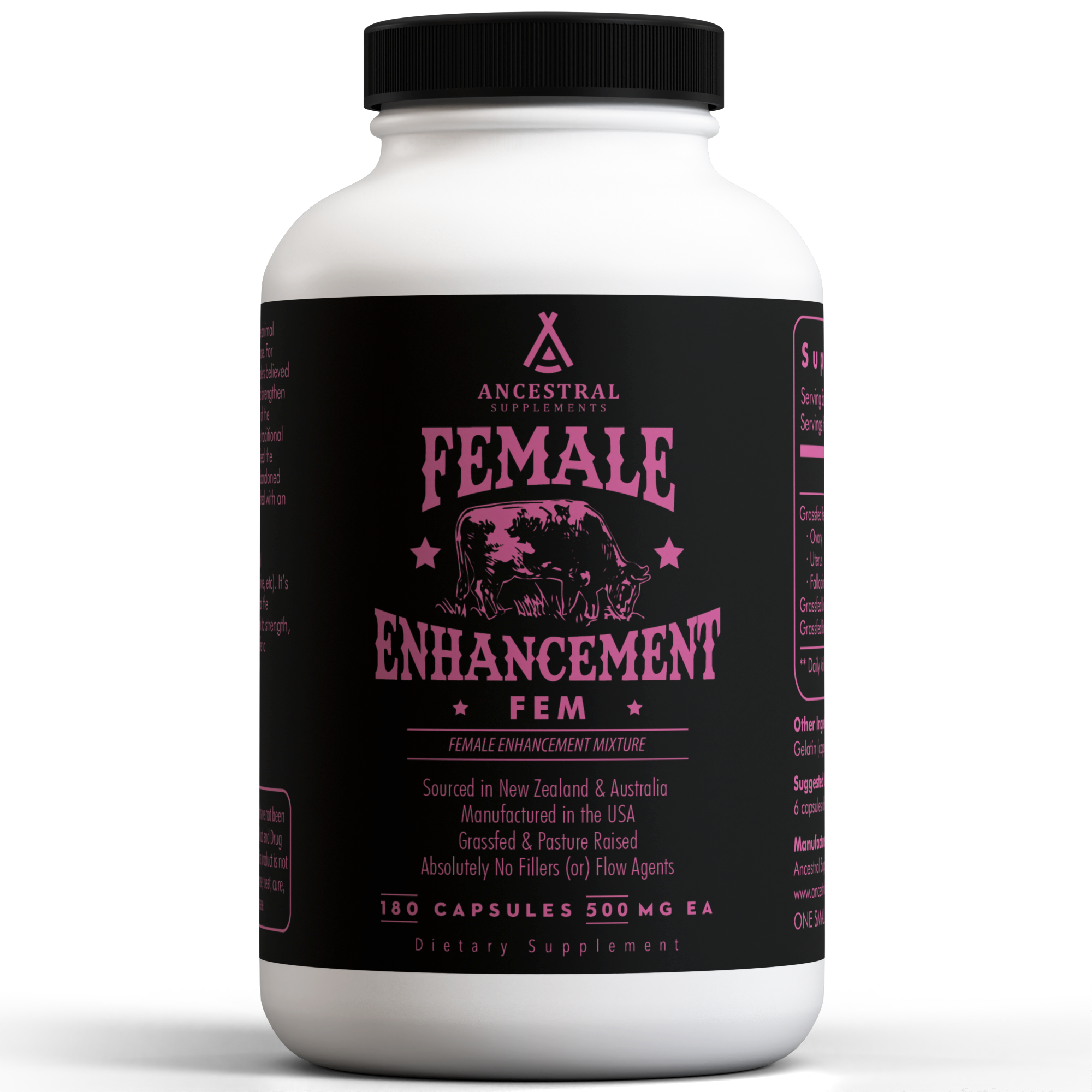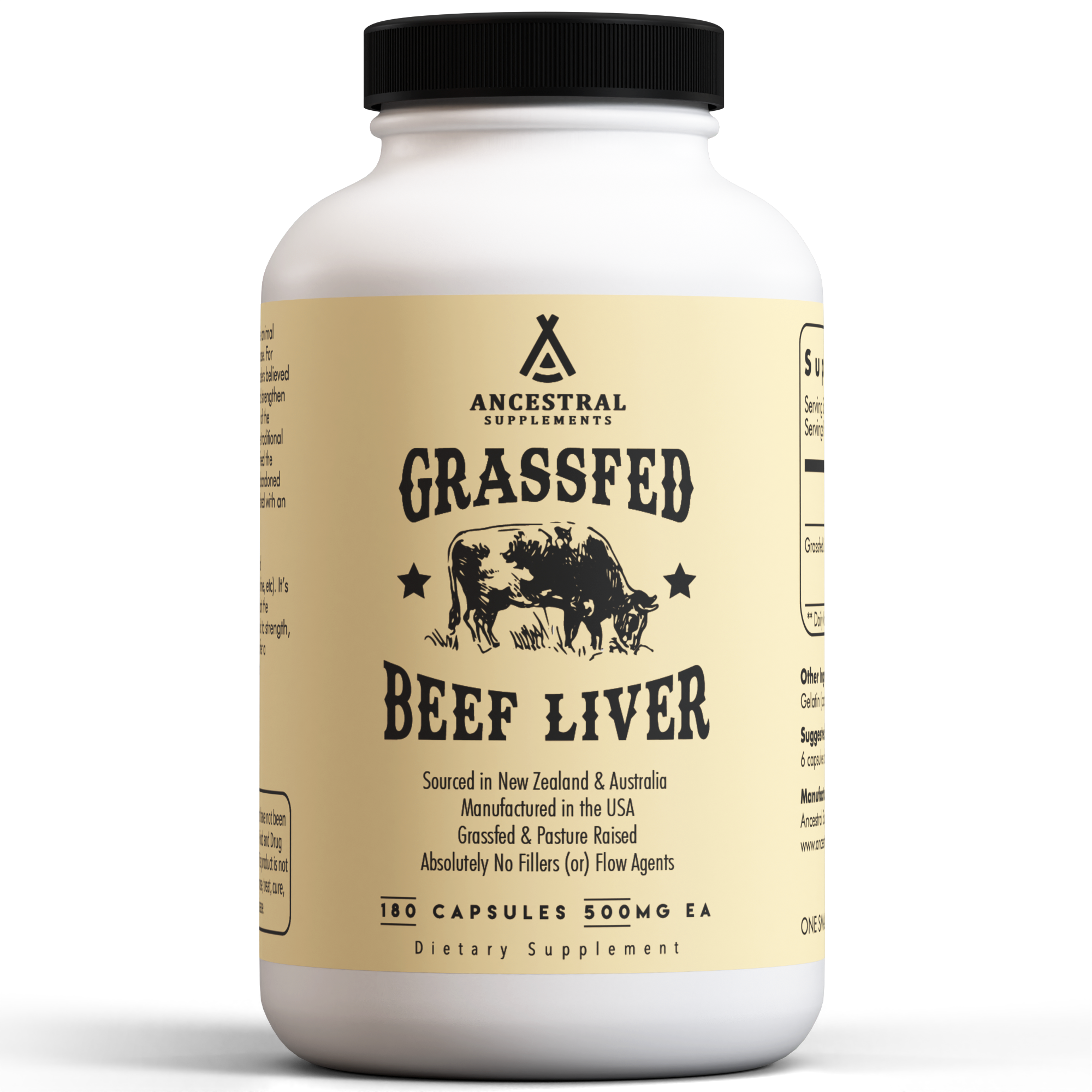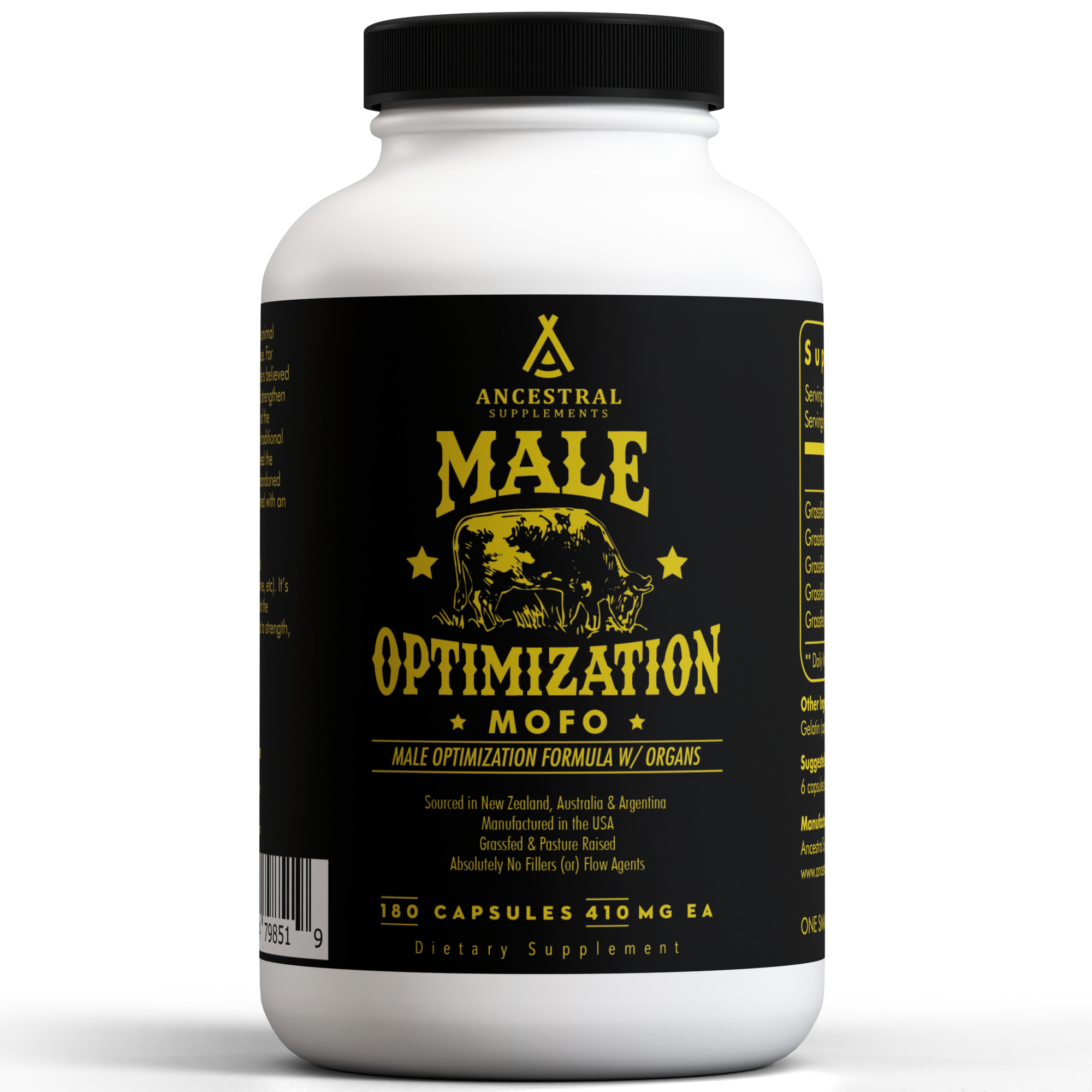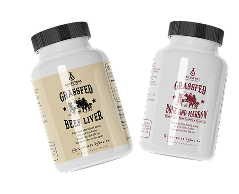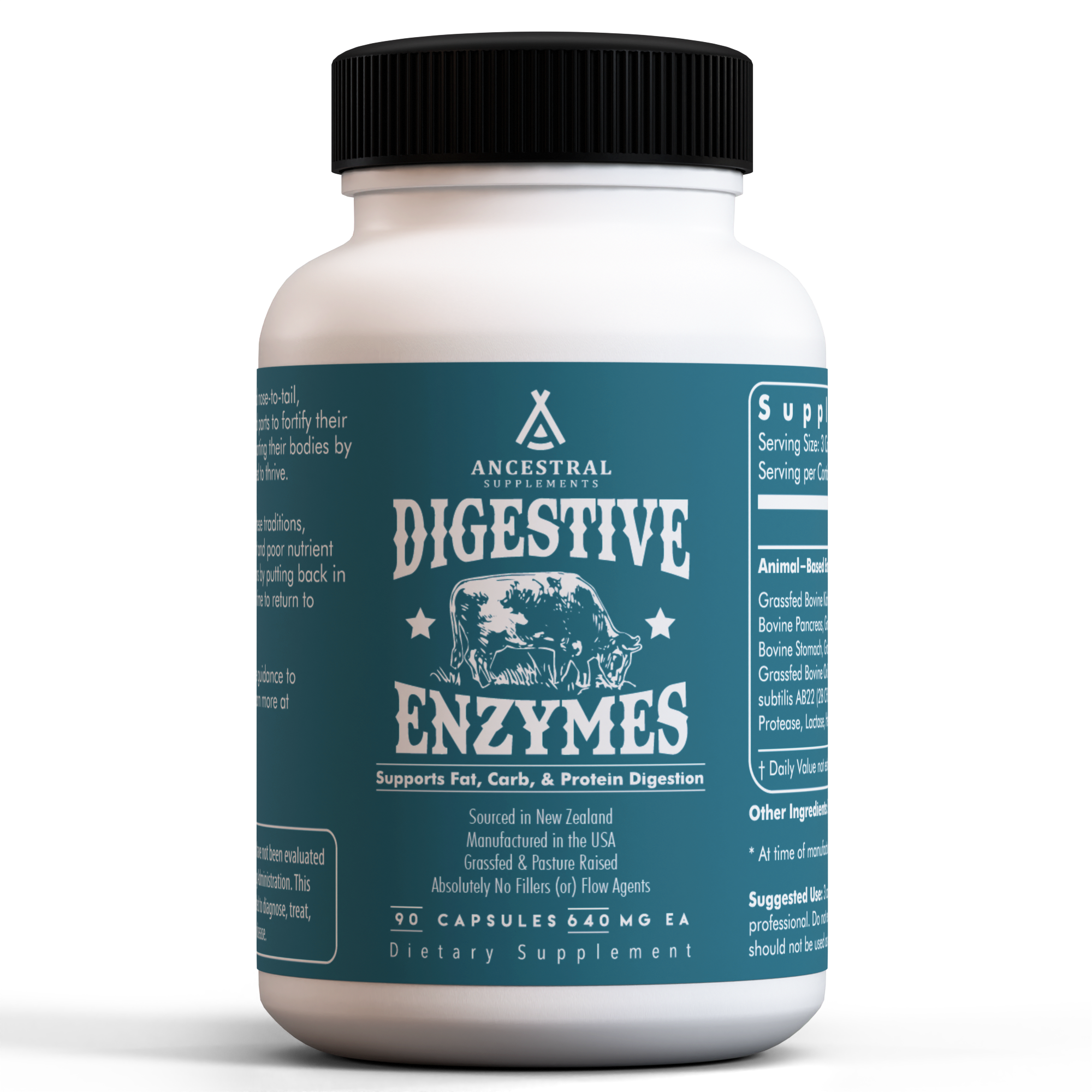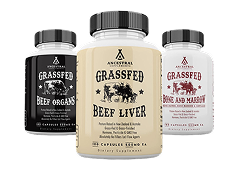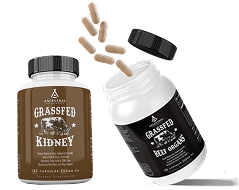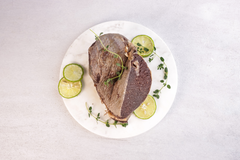Chicken Liver vs. Beef Liver: Which Packs a Bigger Nutritional Punch?

Ah, yes. The world of liver… abundant in so many choices, all grappling for our attention with their unparalleled nutrient density. For this discussion, let's touch on the benefits and differences between our bovine and fowl liver. This article breaks down the facts, directly comparing the nutritional content and health benefits of each in a “chicken liver vs. beef liver” showdown. Discover which liver comes out on top in terms of proteins, vitamins, and minerals. Whether your focus is flavor or fitness, find out which liver aligns with your dietary objectives.
Some Quick Key Takeaways
- Both chicken liver and beef liver are loaded with nutrients, but chicken liver has a milder flavor and fewer calories, while beef liver packs more protein and iron.
- Beef liver is a powerhouse of vitamin B12 and iron, supporting brain function and red blood cell production, whereas chicken liver is richer in vitamin A, beneficial for the immune system and vision.
- If you’re not into cooking liver, grass-fed beef liver supplements offer a convenient, no-prep way to get the same nutritional benefits.
The Great Debate: Chicken Liver vs. Beef Liver
Ever stood in the meat section of your local grocer, eyeing both chicken liver and beef liver, utterly confused about which one to add to your cart? The organ meat aisle can be a perplexing place, especially when you’re trying to decide whether chicken liver vs. beef liver is better for your diet.
Chicken liver, with its milder taste and lighter texture, is often a popular choice for those who are just venturing into the world of organ meats. It’s a versatile ingredient that can be whipped up into a delicious pate or tossed into a sizzling pan for a quick, nutritious meal.
On the other hand, beef liver certainly has a more robust flavor along with a denser texture, making it a favorite among organ meat enthusiasts. But beyond personal preference, how do these two stack up nutritionally?
Let's delve right into the organ meat debate, comparing chicken liver and beef liver. The comparison doesn’t merely hinge on taste, but also on their nutritional worth. We’ll balance the advantages and drawbacks, assess their nutritional profiles, and ultimately assist you in making an informed selection between chicken liver and beef liver.
What Is Chicken Liver?
We've already bragged about the high-protein content of beef liver, but chicken liver offers a substantial amount of high-quality protein, too! Protein is critical for cell growth and muscle repair; however, protein is only one aspect of liver’s nutritional value.
It also contains an abundance of vitamins and minerals, including iron, which is necessary for the production of red blood cells and energy. Beyond iron, chicken liver is a treasure trove of other essential nutrients such as vitamin B12 for neurological health and an impressive range of other B vitamins that contribute to energy metabolism and skin health.
It’s also a good source of folate, crucial for DNA synthesis and repair, and it provides trace elements like selenium, known for its antioxidant properties. While muscle meat is a common source of protein, chicken liver provides an alternative option with a broader spectrum of nutritional benefits.
One of the unique features of raw chicken liver is its vitamin A content. It’s packed with this essential vitamin, which supports immune function, vision, and cell growth. Not to mention, if you’re getting your chicken liver from pasture-raised chickens, it can be an excellent source of omega-3 fatty acids, known for their anti-inflammatory properties.
So, if you’re looking for a nutrient-rich organ meat that’s lighter in taste and texture, chicken liver is a great option! Now, let’s see how it compares to its beef counterpart...
What Is Beef Liver?
Conversely, beef liver captivates with its pronounced, bold flavor and a texture that's decidedly more substantial, earning it a place of honor among offal aficionados. It's not merely its unique taste and satisfying textures that garner admiration; beef liver is also often compared to other organ meats like chicken and pork liver and is the subject of debate regarding the best nutrient density. For adventurous eaters looking to explore the rich world of organ meats, beef liver presents an intriguing and perhaps an even further nutrient-rich option to consider.
Beef liver is a nutritional dynamo, loaded with essential nutrients and vitamins. Its higher protein content, compared to chicken liver, makes it a suitable choice for those seeking a richer protein infusion in their diet. Additionally, it is also rich in heme iron, which is key to immune system function and energy production.
Additionally, beef liver is rich in vitamin A, essential for vision, immune function, and cell growth. Furthermore, it’s an excellent source of vitamin B12, which supports brain function and the formation of red blood cells.
So, if you’re looking for an organ meat with a robust flavor and a high nutrient density, beef liver might be the right choice for you. But the question may still remain—which liver is nutritionally superior?
Chicken Liver vs. Beef Liver: Nutritional Differences
It’s time to put chicken liver and beef liver head-to-head and dissect their nutritional profiles. So, what are the major differences?
Firstly, when it comes to protein content, both chicken liver and beef liver are pretty much neck and neck. They’re both excellent sources of high-quality protein, crucial for muscle repair and growth. However, beef liver does contain more protein than chicken liver, making it a better choice if protein intake is your primary concern. (Bodybuilders and athletes, anyone?)
As for vitamins, both livers are nutrient-dense, but they shine in different areas. Beef liver takes the lead in vitamin B12, which is an essential nutrient for brain function, nervous system operations, as well as red blood cell formation. On the other hand, chicken liver boasts a higher amount of vitamin A, crucial for vision, immune function, and cell growth.
In terms of minerals, beef liver outshines chicken liver in that bioavailable heme iron department. In terms of nutrient density and superiority, beef liver wins. The only way we suggest chicken liver, is if you’re watching your calorie intake... Chicken liver has fewer calories compared to beef liver.
What Is the Best Liver to Eat?
So, which liver earns your vote? The “best” liver for consumption greatly depends on your individual preferences and nutritional needs.
But once again, if you prefer a milder taste and fewer calories, chicken liver might be your best bet. And again, we don't want to knock it, in terms of nutritional value! It’s still a very good source of vitamins and minerals, especially in the vitamin A department. On the other hand, if you’re looking for a nutrient-dense food with a more robust flavor, beef liver is the solid choice... And, to recap, it’s particularly high in protein and iron, making it an excellent choice for those needing a nutrient boost.
So, you're at the culinary crossroads: chicken liver or beef liver? Whichever path you take in this flavorful fork in the road, it should jive with what your body craves. Either way, we're delighted to let you know that you still win!
Potential Side Effects
While liver is a nutritional treasure trove, it's important to consume it in moderation. Overindulgence could lead to vitamin A toxicity, particularly with beef liver due to its high concentration of the vitamin. This is because vitamin A is fat-soluble and can accumulate in the body if taken in great excess. However, this is generally only a concern when consuming very large amounts of liver regularly.
And by the way... It's totally worth noting that the body tends to process nutrients from whole-food sources much more efficiently! This is because whole foods, like chicken or beef liver, provide a complex matrix of vitamins, minerals, and cofactors that work synergistically to enhance absorption and utilization in the body.
Lastly, as with all meats, it's crucial to ensure that liver is sourced from healthy animals and prepared properly to avoid the risk of foodborne illnesses... Which is why we always suggest getting your supplements from Ancestral Supplements. You get 100% quality, every single time.
Enjoying liver as part of a varied diet can help mitigate these risks while allowing you to reap its nutritional benefits.
Try Our Grass Fed Beef Liver Supplement Today
If the idea of preparing and consuming liver doesn’t particularly entice you... don't worry, we've got your back. After all, there are some who aren't exactly fond of consuming offal via prep and kitchen time. And if this is you, consider our Grass Fed Beef Liver. This supplement provides the same health benefits as eating liver, without any required preparation or cooking.
Our beef liver supplement is made from 100% grass-fed raw beef liver, ensuring high-quality protein and a rich source of essential nutrients. It’s a convenient and nutrient-dense alternative to consuming whole organ meat, great for those on the go or those who simply prefer not to deal with the strong flavor of organ meat.
So, why not give it a try? You’ll get all the nutritional benefits of beef liver in a convenient, easy-to-take supplement. It’s the perfect solution for those looking to incorporate the benefits of organ meats into their diet without the hassle of cooking.

